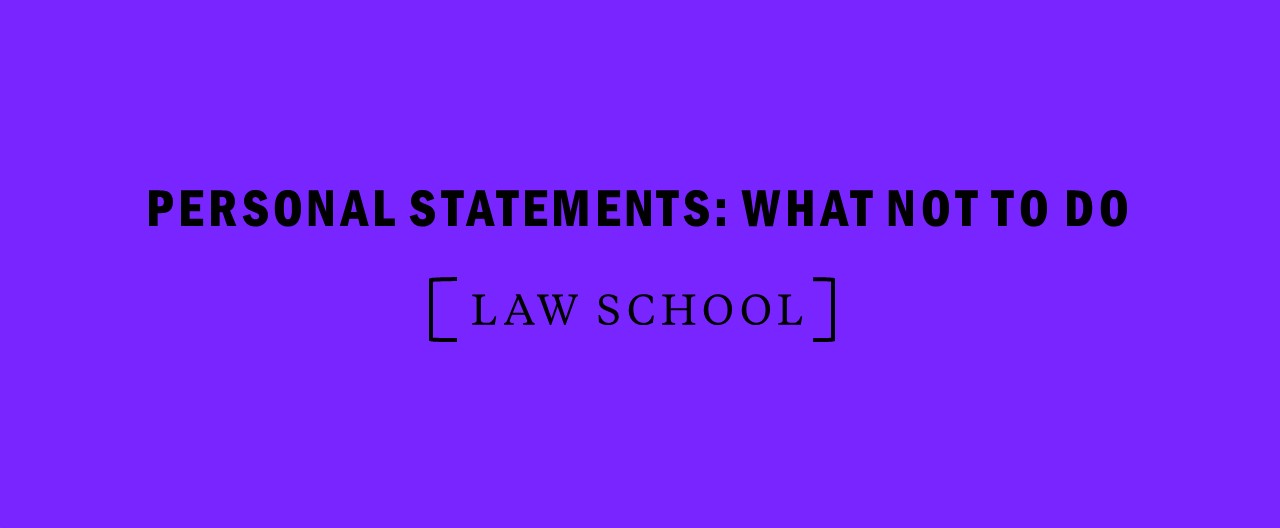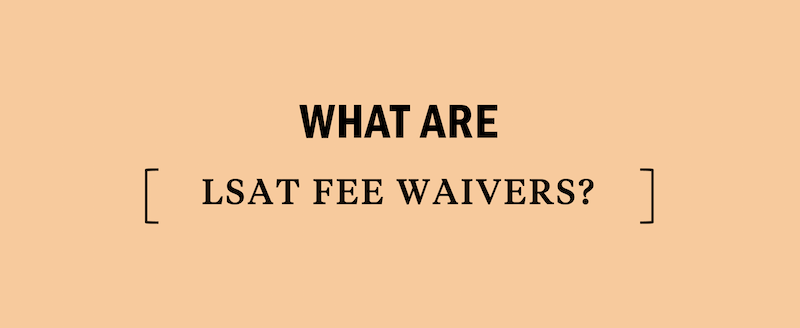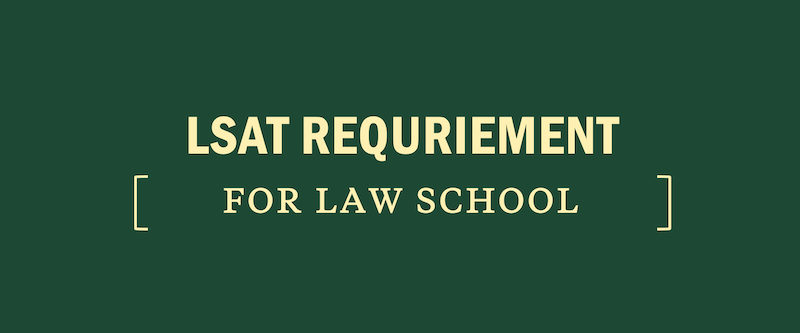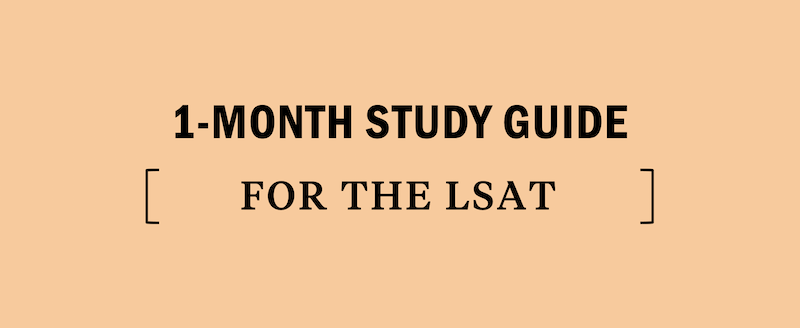Law School Personal Statements: What Not To Do
Granted, they don’t yet know who you are. But many law school admission reviewers are secretly rooting for you, hoping that you’ve written a good statement, an interesting statement, a statement that will leave them saying, “Wow, what a unique and impressive applicant!”
Unfortunately, in most cases, they are sorely disappointed. Not only do most personal statements fail to meet the criteria of being “good,” but they actually cross the line and into the realm of “bad” or even “ugly.”
TABLE OF CONTENTS:
- How important is a law school personal statement?
- Why writing law school personal statements is hard
- What not to do with your law school personal statement
- What to avoid when formatting a law school personal statement
- Law school personal statement topics to avoid
- Bad law school personal statement opening lines
- Bad law school personal statement example
How important is a law school personal statement?
Law school personal statements are an incredibly important part of your law school application because they offer you the chance to illustrate who you really are and why law school is the logical next step in your education.
Why writing law school personal statements is hard
Knowing how to write a law school personal statement is difficult because it requires you to write a story that illustrates the reasons why you want to go to law school. You’ll need to reflect on your personal experiences and translate that into a convincing statement that is well-organized and persuasive.
What not to do with your law school personal statement
Avoid writing a bad personal statement by staying away from the items below.
DO NOT Submit an essay version of your resume in your Personal Statement
You will submit your resume in a separate portion of your law school application, so there is no need to expand on that in your personal statement.
One of the most common mistakes everyone involved in admissions has seen is the “everything but the kitchen sink” personal statement.
Unfortunately, it also almost always leads to a weaker personal statement. Rest assured, law school admissions offices will be looking at every single aspect of your application, including your resume. Use your personal statement to provide that extra context your resume cannot.
DO NOT Use the same personal statement for every law school
The majority of law schools have relatively broad writing requirements, but they often differ. Even though the prompts may seem similar, 99% of the time they are different in a way.
It’s best to change your statement just a little and tailor it to the school, even if you do encounter two identical prompts.
DO NOT Include Dramatic Tales of Romance in your Personal Statement
A dramatic tale of romance would read like something from Romo and Juliet or Pride and Prejudice. Lofty, pretty words that come off as vague should not be included in your law school personal statement. Be specific and look for overly abstract phrasings. If you notice one, try to determine if it’s necessary and if so work on clarifying the point you are trying to get across.
DO NOT Curse in your Personal Statement
Avoid cursing in your law school personal statements. If you must, do it sparingly and make it count.
DO NOT Include Absolute statements in your Personal Statement
Absolute statements tend to sound more unreasonable than reasoned—and law school is all about reason.
Absolute statements are assertions that some fact or idea is completely, undeniably true. Here’s an example: “I’m going to create the best possible life for us.”
More than likely, this thought could have been rephrased to “I’m going to create a good life for us.”
Scour your essay for any absolute terms (perhaps even marking them with a highlighter) and then consider each one individually, asking yourself:
- Is this necessary?
- Is this true?
- Can I say this in a more tempered way?
Doing so will strengthen your law school personal statement.
DO NOT Talk too much about “the world” and/or too little about yourself in your Personal Statement
Your personal statement is meant to be about you, not about how the world works. Of course, you may need to share some facts about the world around you and the people in your life to make your story clear and meaningful, but you should be writing much more about yourself than about anything else.
Here are a few ways to tell if you may be talking too much about “the world” and/or too little about yourself:
- You have several sentences in a row describing life (or the universe, or society, or the world) in abstract terms.
- You spend a full paragraph talking about something or someone else without reflecting on your topic from your own perspective.
- You get to the end of the personal statement and realize you do not know how what you have read reveals something significant about you as a person.
- You spot very few uses of “I” in your personal statement.
If any of these describe your current draft, look for ways of introducing yourself more frequently in it.
DO NOT Forget to Edit and Proofread your personal statement
Proofread your statement and have a close friend or colleague with fresh eyes – one who hasn’t read lots of drafts – review it closely before submitting. The statement isn’t solely about content. The writing itself is important.
Some key elements to look for when proofreading your law school statement are:
- Typos
- Improper word usage
- Poor organization of paragraphs
- Bad punctuation
Forgetting to remove/fix these will sink the application even before the reviewer has finished reading it.
DO NOT Ignore the personal statement guidelines
If an application lists essay page limits, word limits, margin limits, font limits, or even character limits, follow these guidelines unless otherwise directed by an admissions officer at the schools in question. And, when in doubt about an application rule, make a 3-minute phone call to the admissions office to confirm the requirement.
While there may be an admissions officer or two who are kind about overlooking a rule here or there, there are others – especially at the end of a long day after just having read dozens of awful essays – who will not be so forgiving. Also, don’t forget – you’re planning on becoming a lawyer, and it is expected that you will play by the rules. Don’t give reviewers an easy reason to downgrade your application.
What To Avoid When Formatting A Law School Personal Statement
DO NOT Title your personal statement
Law School personal statements do not need a title unless specifically asked for in your law school application, so you should not title your law school personal statement.
DO NOT Use unconventional spacing or formatting in your personal statement
Avoid using unconventional spacing or formatting in your law school personal statement to emphasize your point. Having these issues present can turn an admissions reader off. Stick with 11- or 12-point font (ideally Times New Roman), indent your paragraphs, and do not put an extra line space between them.
DO NOT Use lots of exclamation points in your personal statement
Try to keep your use of exclamation points to a minimum in your law school personal statement.
Law School Personal Statement Topics To Avoid
Below are some approaches and topics to avoid in your law school personal statement.
The Inappropriate Downer
Here’s a personal statement intro that exemplifies an inappropriate downer:
I have bad grades, I’m an awful test taker, and I have two convictions for drinking while driving – oh, and a summons for urinating in public, though not while I was actually driving the car.
It is possible and, in fact, advisable to explain these types of problems (if you have them). However, unless otherwise directed by the application rules, it is advised that you not do so in the personal statement, but rather in a concise addendum to the application. That doesn’t mean that you can never refer to a negative aspect of your background in your law school personal statement.
For example, if you’ve overcome a life-threatening illness, it is absolutely fine to briefly discuss the obstacles and the bad times, but the focus should be much more on how you overcame than on how you were held back. Be upbeat. Be positive. Be inspiring. Don’t bring me down.
The No-Show
One mistake that some applicants make in the law school personal statement is their failure to show how great they are. Admissions officers will not be impressed if you simply tell readers that you are good, great, or special. In fact, by simply telling without showing, you are likely to come across as arrogant, unfriendly, and just plain uncool.
The Gimmick
Don’t write a law school personal statement that relies on gimmickry. This includes framing your essay as:
- a poem
- a newspaper article written in the third person
- a movie script
- a stand-up comedy routine
While the words of your statement should flow like poetry to one’s ears, you should not write an actual poem.
The Essay About Your Mother
While your mother may be a great and inspiring woman, she should not be the focus of your personal statement. For that matter, neither should your father, brother, sister, cat, snake, or turtle.
Now that doesn’t mean that you can’t include very brief references and examples in your statement about a person who has been the greatest inspiration in your life. That can be fine. Ultimately, however, the vast majority of the verbiage in your essay must be focused on you and your experiences – no matter how amazing the stories of those who inspired you may be.
Bad law school personal statement opening lines
To help you craft an effective law school personal statement, here’s a sampling of some openers that, one way or another, miss the mark:
- “The ball falls through the net as the buzzer sounds. I give Cornell the victory with a last-second shot. Unfortunately this never happened, but even now the dream remains.”
- “When taken chronologically, anyone’s life may seem to be a series of loosely connected events. Each follows the other, sometimes neatly, sometimes not, but…”
- “I have never been fond of dogs; I find their habits repulsive, their odor offensive, and I shudder to think of one living in my home. And yet, one day…”
- “The final brush strokes in the portrait of [name], applicant for admission to the X School of Law have been completed, and I would very much appreciate your bringing them to the attention of the Committee on Admissions.”
- “‘It is true,’ the witness begins, ‘that my undergraduate GPA is low, but I submit to you that success, past and future, are not measured by grades alone. Mental toughness, leadership, demonstrated hard work intellectual vision should also count for something, and do, if I read my NYU Law School prospectus correctly.’ Murmurs of ‘typical English major bluster’ waft from the jury’s bench, but the witness continues…
Bad law school personal statement example
Note: To maintain the integrity and authenticity of this project, we have not edited the personal statements, though any identifying names and details have been changed or removed. Any grammatical errors that appear in the essays belong to the candidates and illustrate the importance of having someone (or multiple someones) proofread your work.
Personal Statement
Suddenly, there I was, twenty-three-years old and standing in line at CVS with a giant, conspicuous box of adult diapers. When I got to the check out, the pretty blond behind the cash register looked at me quizzically. “For my grandma,” I said.
I was one year out of school and working for a preeminent law firm as a paralegal, when something began going terribly wrong. Earlier that day I had been in a meeting with a partner when the urge to urinate had come on strong. Normally I could conduct a five wrap-up of whatever I was doing and make it to the restroom, no problem. But suddenly, within literal seconds of first experiencing the urge, there was no stopping it.
My dark trousers kept the secret after I left the room. And I was able to slip back into the then-empty conference room later to clean up under the guise that I had “spilled my coffee.” But as I pled sudden illness and left work early, I began taking inventory of my life. The sudden and frequent need to urinate had been going on for the last two years. I was living an embarrassing stream of television ads almost all featuring men and women twice my age. But my problem had become unmanageable. I made an appointment with my first doctor since childhood for the very next day.
My doctor did not recoil in horror when I told him why I’d come. Instead he talked me through a series of questions and even made a “gotta go” joke that was deeply appreciated during this awkward conversation about public urination. He ran tests for Parkinson’s, multiple sclerosis and diabetes, all of which came back negative. He prescribed me pills that didn’t do much to ease my discomfort or lessen my risk of what was rapidly becoming, frequent accidents.
I began a year-long and seemingly endless tour of urologists, gastroenterologists and specialists of every body part you could imagine. I was finally diagnosed with “idiopathic overactive bladder:” a nice way of saying, “This guy constantly has to urinate for no good reason.” By this time, I was spending my life in a state of abject horror. What had been an outgoing personality shriveled up. I went to work but spoke little. I stopped meeting with friends. I stopped dating. I retreated from life. I took too many sick days so I didn’t have to face what was happening. Three years since it started, I was laid off.
Suddenly, with no solution to my problem in sight, and a life I was shocked to discover had become lonely and disengaged, I moved back in with my mother and father. They were overcome as they learned the extent of my plight. One day, they sat down with me in my lived-in bedroom and produced a packet. On the cover was one giant word, “Botox.” I knew what Botox was and as I understood it, it helped keep celebrities looking young. Plastic surgery was the least of my worries, and the fact that my parents were suggesting it suddenly made me wonder if they were trying to shame me out of their house completely.
But then my mother tapped a series of words inside the pamphlet. “As little as 100 units injected into the bladder can help ease the spasms of the detrusor muscle that often leads to overactive bladder (OVB).” I remembered having heard about an injectible treatment having had some success in Europe, but it still hadn’t been approved in the U.S.
“It was approved in January,” my mother said, as if she was reading my mind.
The absurdity and shame that had already made up the majority of my 20s was about to hit a whole new low. In [the doctor’s] office with the packet in hand, I found I couldn’t even find the words. But when he saw me in that small room he smiled and led the way. That day, my bladder was scheduled for some much-needed plastic surgery, and my life changed forever.
The procedure was an uncomfortable one, and unfortunately must be repeated quarterly. But my life over the subsequent year quietly changed into one in which I felt normal again, even confident. I got another job as an aide in the Mayor’s office, and I started dating again. Soon, I was able to move out of my parents’ house and follow up on all the dreams I had had before all of this began—beginning with law school.
My life lessons from OAB, as you can imagine, are many. I find that very little embarrasses me anymore. I am grateful for my life and my newfound ability to live one. I have learned that my condition was very likely caused by alcohol consumption in college, and as such, I have been completely sober for two years. In fact, a total shift in my diet has similarly helped alleviate my symptoms to such a degree that my doctors feel I might be able to go off the Botox eventually and begin a small regimen of a new oral medication.
My goals are to live a normal life and to accomplish my myriad dreams knowing that I have overcome an obstacle that is, frankly, much too embarrassing to put into a personal essay for a law school application—which is exactly why I am putting it here. I have learned not to be ashamed of what I have dealt with; I have learned that it makes me who I am today, someone who can empathize with others when their struggles are taboo, and someone who can face what has made me and say, I will keep working toward my dreams.
Review of Bad Law School Personal Statement
Overall Lesson: The story that is most meaningful to you may not be the best topic for your personal statement.
First Impression: Despite the essay’s slightly uncomfortable topic, I think it has a strong beginning. I am curious to see where the candidate goes with it.
Strengths: The candidate seems generally intelligent, and I am sympathetic to his plight. The writing is good overall, though the ending of the essay leaves something to be desired, as does the subject matter.
Weaknesses: This is an odd essay. Again, I am not sure what to make of its primary subject matter. I wonder if this really was the “best” story the candidate could have chosen to share, but at the same time, that is precisely his point—the topic is taboo, yet he refuses to be embarrassed by it. I am left wondering if perhaps the topic would be better suited to an addendum essay explaining the gap on his resume.
If the candidate ultimately opts to stick with this theme, I think he could tell the story of what happened in fewer words to devote more attention to the meaning of it: that he grew as a person through the experience and, as a result, will enter law school with a more challenging personal history and a more empathetic outlook. This is a profound point he could make, and although he does touch on it, he does not express it as fully and effectively as he should. And rather than discussing his bladder troubles for more than a full-page, he should shift the essay’s focus away from the minute details of his story and instead reflect on the experience. Doing so will require powerful writing, however, and little of that is currently exhibited in this draft.
Finally, the candidate needs to explain his motivation for pursuing a law degree. He mentions his past employment as a paralegal and implies that attending law school was one of his dreams before his medical problem wreaked havoc on his life. However, he never actually discusses why he is interested in becoming a lawyer, so this missing information needs to be added.
Final Assessment: As an initial exercise, I would help this candidate brainstorm other possible topics just to see what alternate options might exist. However, he does not necessarily need to change topics; this one could still work. To make this an effective essay, the candidate would need to situate the topic within a richer, more nuanced, and concise reflection on why this experience is so significant to his path to law school. Remember, the purpose of your personal statement is to convince the admissions office that it wants you at its school. What is the very best material you have to accomplish that goal?





